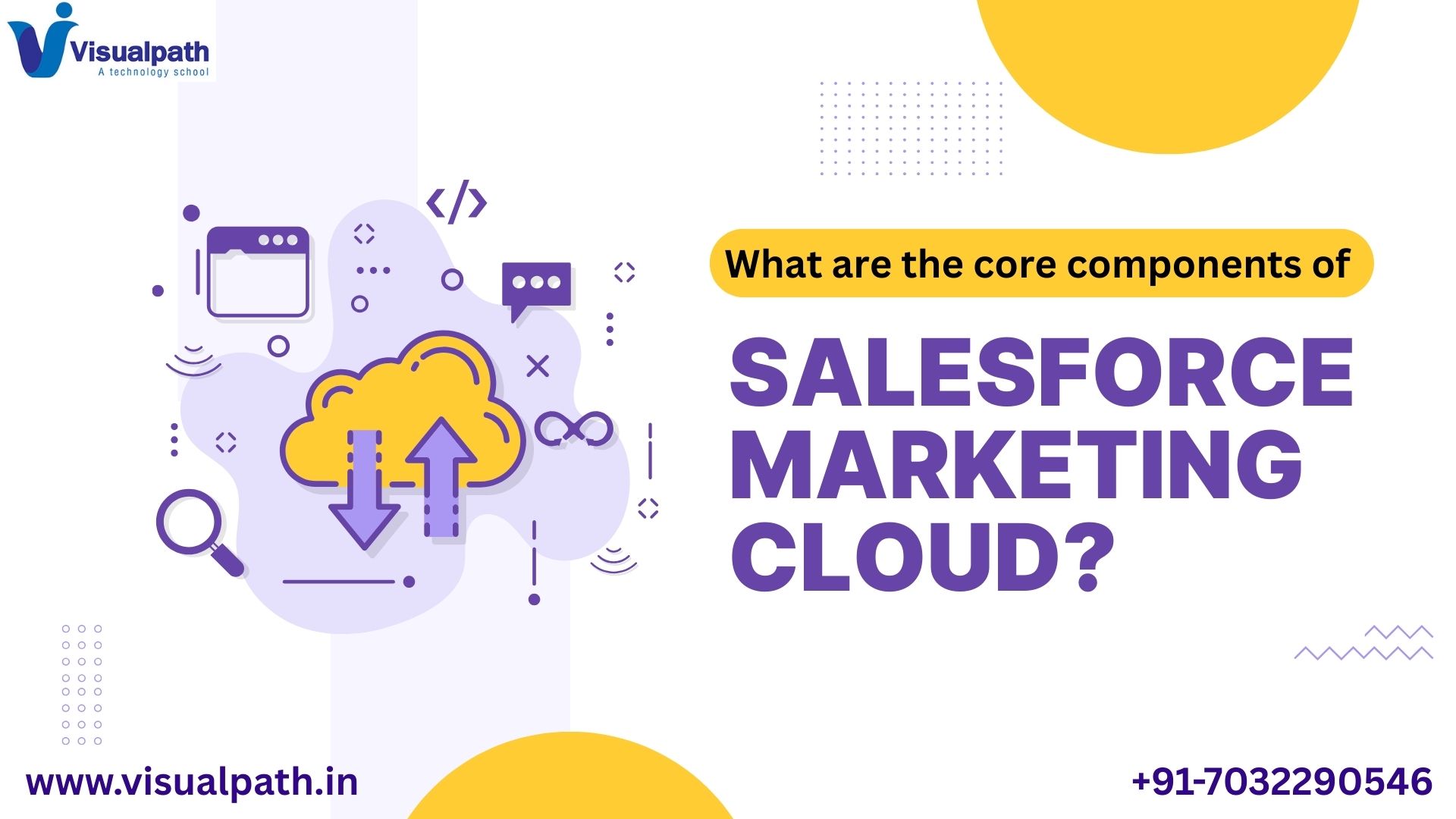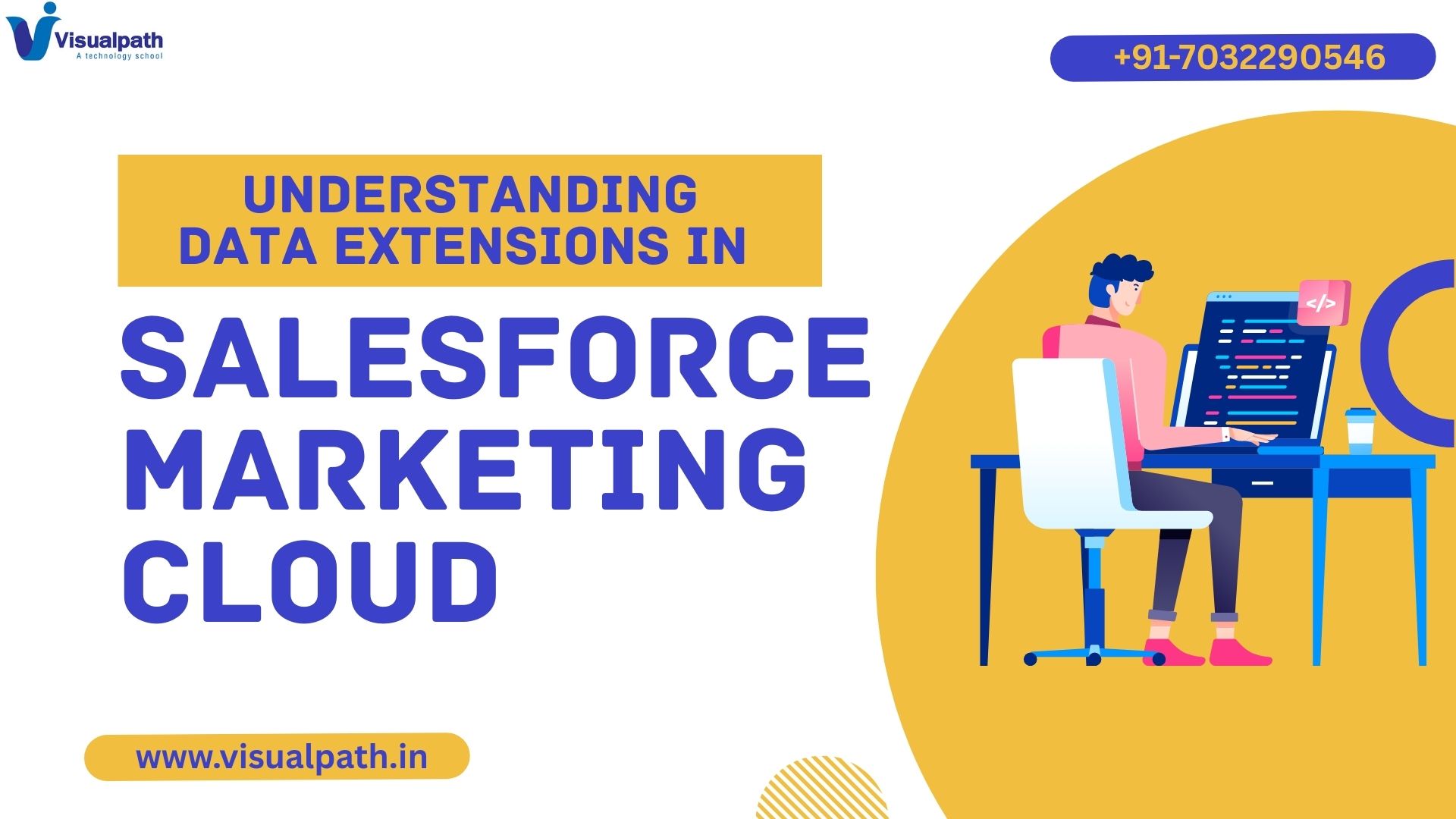Introduction to Salesforce Marketing
Salesforce Marketing Cloud (SFMC) is a powerful digital marketing automation platform that enables businesses to create, manage, and analyze customer interactions across multiple channels. It helps organizations deliver personalized experiences to their customers using data-driven insights. Below are the core components of Salesforce Marketing Cloud and how they function.
1. Email Studio
Email Studio is a robust email marketing tool that allows businesses to create and send personalized email campaigns. It provides advanced segmentation, automation, and A/B testing features to optimize email performance. Users can design responsive emails using drag-and-drop functionality or custom HTML, ensuring a tailored experience for each recipient. Salesforce Marketing Cloud Online Training
Key Features:
- Personalized email content using AMPscript
- Dynamic content and automation
- A/B testing and performance analytics
- Integration with customer data for targeted campaigns
2. Journey Builder
Journey Builder enables marketers to create automated customer journeys based on behavior, demographics, and interactions. It helps in crafting seamless multi-channel experiences across email, SMS, push notifications, and social media.
Key Features:
- Visual journey mapping with drag-and-drop functionality
- Real-time decision splits for personalized engagement
- Multi-channel campaign orchestration
- AI-powered insights for optimization
3. Mobile Studio
Mobile Studio is designed for mobile marketing, allowing businesses to engage customers through SMS, MMS, push notifications, and in-app messaging. It helps brands connect with users in real-time with personalized mobile messages. Salesforce Marketing Cloud Training Online
Key Features:
- SMS and MMS messaging capabilities
- Push notifications for app users
- Geo-targeted messaging
- Automated mobile engagement campaigns
4. Social Studio
Social Studio enables businesses to manage, monitor, and analyze social media interactions. It provides tools for scheduling posts, engaging with audiences, and tracking social sentiment in real-time.
Key Features:
- Social media publishing and scheduling
- Sentiment analysis and social listening
- Customer engagement tracking
- Integration with other SFMC components for unified marketing
5. Advertising Studio
Advertising Studio allows businesses to create targeted advertising campaigns on platforms like Facebook, Google, Twitter, and LinkedIn. It leverages customer data to deliver personalized ads and re-engagement campaigns.
Key Features:
- Audience segmentation for precise targeting
- Cross-channel ad campaigns
- Retargeting and lookalike audience creation
- Synchronization with CRM data for better personalization
6. Audience Builder
Audience Builder helps marketers segment and manage customer data for highly targeted marketing efforts. It provides a centralized platform to create and manage audiences based on demographics, behavior, and interactions.
Key Features:
- Advanced segmentation using drag-and-drop tools
- Data integration from various sources
- Real-time audience updates
- Personalized campaign targeting
7. Content Builder
Content Builder is a centralized content management system for creating and managing marketing assets such as emails, landing pages, and social media posts.
Key Features:
- Drag-and-drop content creation
- AI-powered content recommendations
- Centralized asset storage for easy access
- Cross-channel content distribution
Conclusion
Salesforce Marketing Cloud is a comprehensive platform designed to help businesses manage customer relationships across multiple touchpoints. Its core components, including Email Studio, Journey Builder, Mobile Studio, and others, provide a seamless and personalized customer experience. By leveraging these tools effectively, marketers can optimize engagement, improve ROI, and drive business growth.
Trending Courses: Cyber Security, GCP Data Engineer Training, Gen AI for DevOps




